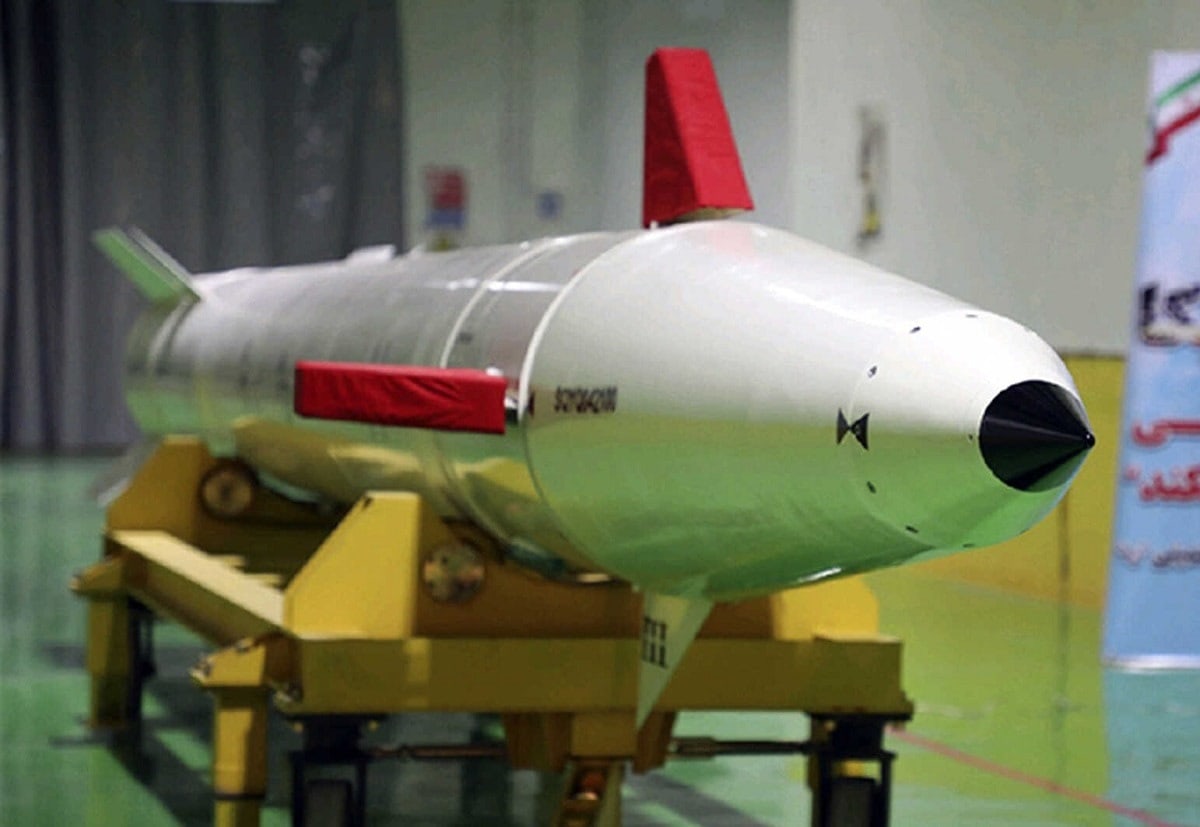The Iranian Navy seized an oil tanker in the Gulf of Oman last week, the latest in a string of incidents involving the strategic waterway. Iranian officials claimed that two of its crew members were missing and several others injured following a collision involving the Marshall Islands-flagged oil tanker.
The vessel, identified by the U.S. Navy’s Mideast-based 5thFleet as the Advantage Sweet, issued a distress call early in the afternoon as Iran’s Navy seized the ship. Iranian state-run news outlets said that the incident occurred after an “unknown ship collided with an Iranian vessel last night in the Persian Gulf, causing several Iranian crew members to go missing and get injured.” However, the U.S. 5thFleet stated that “Iran’s actions are contrary to international law and disruptive to regional security and stability.”
Over the last few years, Iran has ramped up its hostile behavior toward international vessels in the Gulf of Oman. This latest incident occurs amidst ongoing tensions between Tehran and Washington surrounding the country’s nuclear ambitions.
When Did Tensions Erupt?
Following then-U.S. President Donald Trump’s decision to withdraw from the 2015 Joint Comprehensive Plan of Action (JCPOA), tensions in the area’s international waters have soared. In 2018, four oil vessels were attacked off the port of Fujairah on the Gulf of Oman. Saudi Arabia and the United Arab Emirates owned the four vessels, which were attacked outside the Strait of Hormuz. Nearly a fifth of the globe’s oil consumption passes through this critical waterway, according to the U.S. Energy Information Administration, making it a prime target for Iranian-launched attacks. While Tehran may not possess the superior military equipment or will to kinetically assault adversaries as belligerently, the Iranian regime still likes to display its ability to disrupt the global economic market by stymieing the flow of oil in the Strait.
Iran Has a Track Record of Launching Attacks in the Gulf of Oman
In 2021, the U.S. accused Iran of carrying out an attack targeting an Israeli-managed tanker in the Gulf of Oman. Two crew members were killed in the attack. The same year, the Islamic Revolutionary Guards Corp (IRGC) also targeted a U.S. Naval vessel.
Over the last year, as nuclear negotiations in Vienna have dwindled, Tehran has continued to perpetrate attacks in the Gulf of Oman. Over the summer, three Iranian attack craft harassed two U.S. ships off the Strait of Hormuz, igniting a volatile incident with the Navy. A video depicting a smaller Iranian vessel turning head-on toward the USS Sirocco indicated how dangerously close the vessels came to the Navy ship.
Escalating Tensions Could Mean More Incidents
Regarding this week’s incident, the Navy’s 5thFleet said that the latest seizure was at least the fifth commercial ship taken by Iran in the last two years: “Iran’s continued harassment of vessels and interference with navigational rights in regional waters are a threat to maritime security and the global economy.”
Iran has not just resorted to attacks in international waters in recent years. Since January, Iranian-aligned groups have launched dozens of drone and rocket barrages targeting its regional adversaries. A lethal drone attack even killed an American contractor at a coalition base in northeast Syria in March.
In addition to Iran’s land and sea-based attacks, the country is inching closer and closer to obtaining a nuclear weapon. The International Atomic Energy Agency has recently cautioned that Tehran has enriched uranium up to 60 percent purity. Once the regime reached weapons-grade levels of 90 percent, it could act to develop several nuclear weapons.
As Tehran approaches its nuclear breakout time, Israel will be more willing to launch a full-scale assault on its nuclear facilities. According to the Jewish state’s Begin Doctrine, the country must act to prevent its enemies from acquiring weapons of mass destruction (WMD) capabilities- particularly nuclear weapons.
Maya Carlin, a Senior Editor for 19FortyFive, is an analyst with the Center for Security Policy and a former Anna Sobol Levy Fellow at IDC Herzliya in Israel. She has by-lines in many publications, including The National Interest, Jerusalem Post, and Times of Israel. You can follow her on Twitter: @MayaCarlin.

